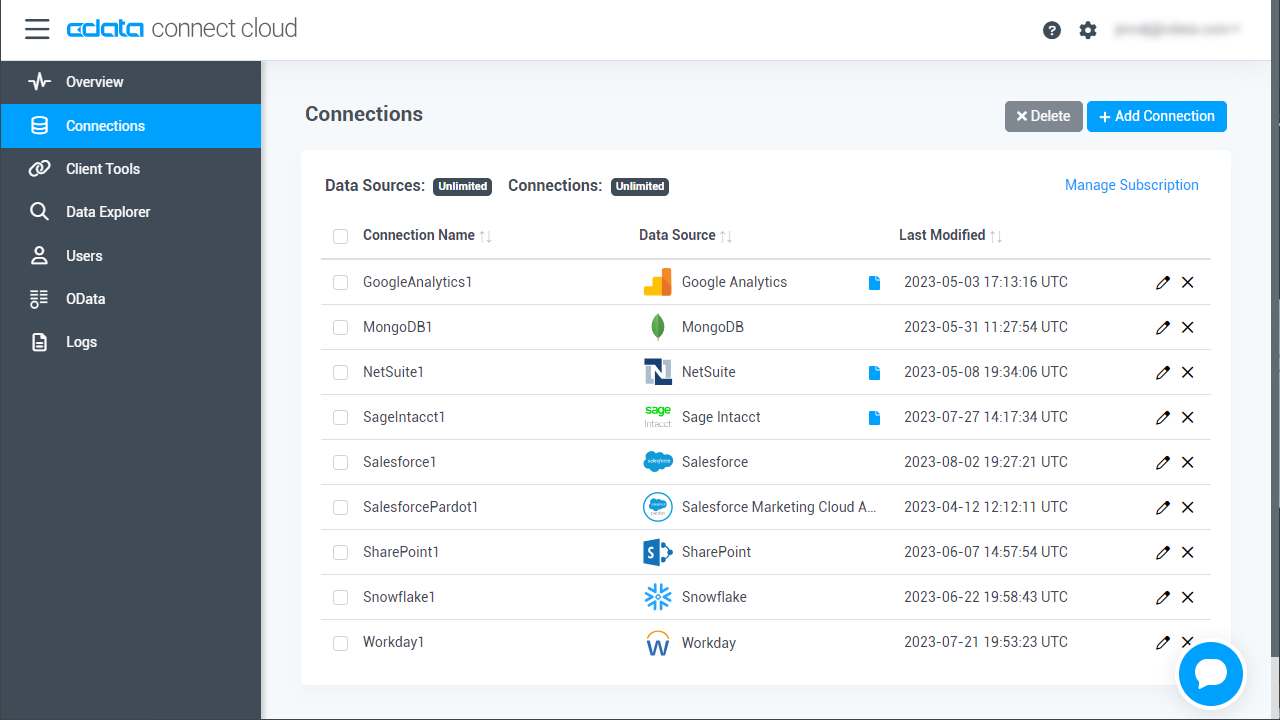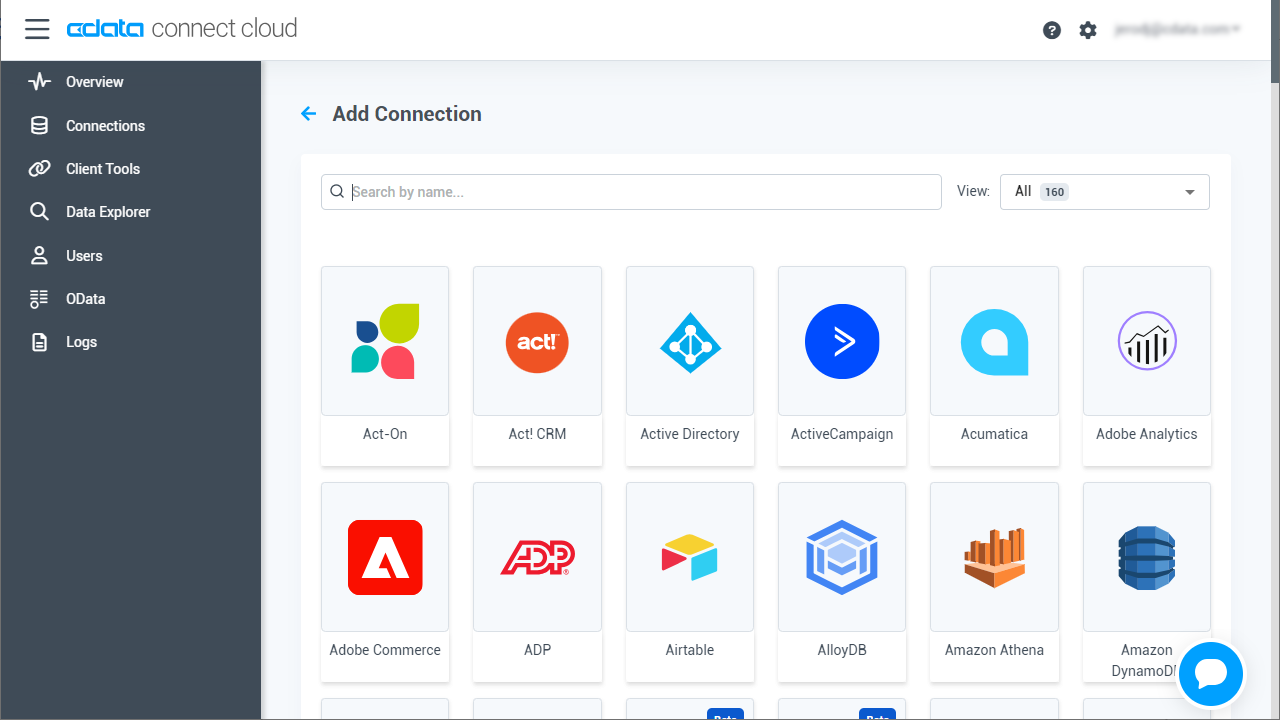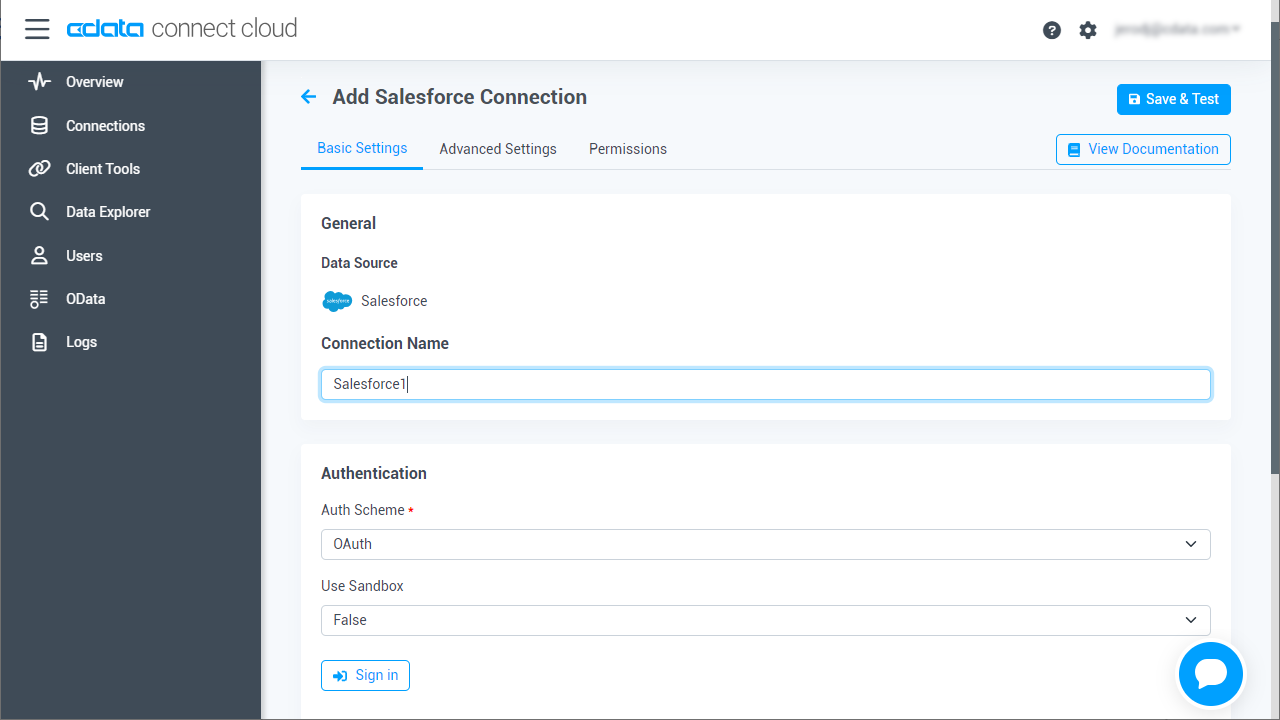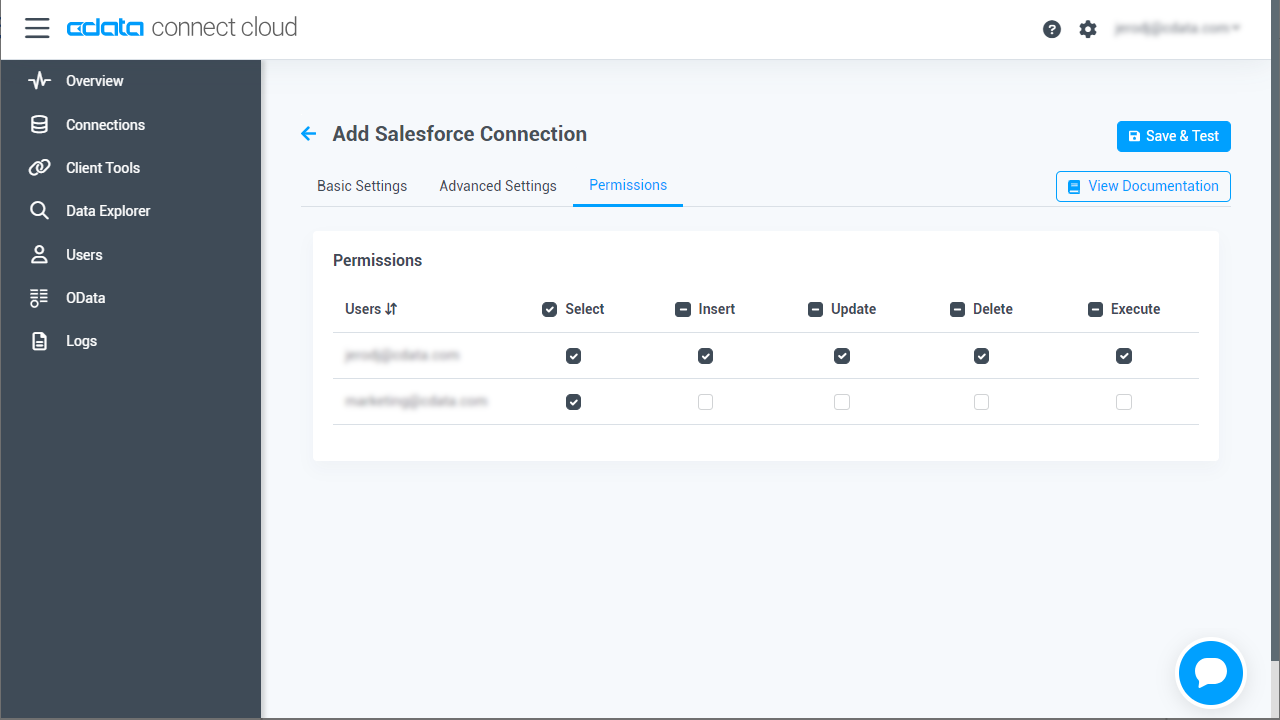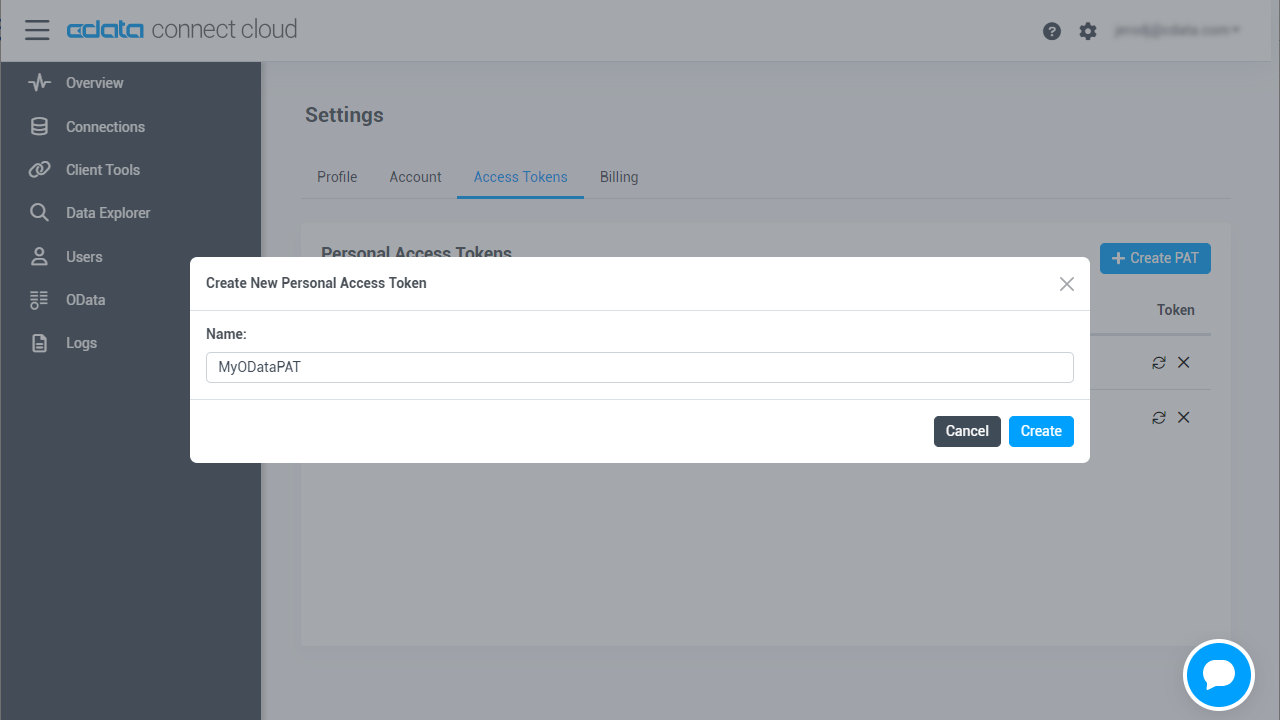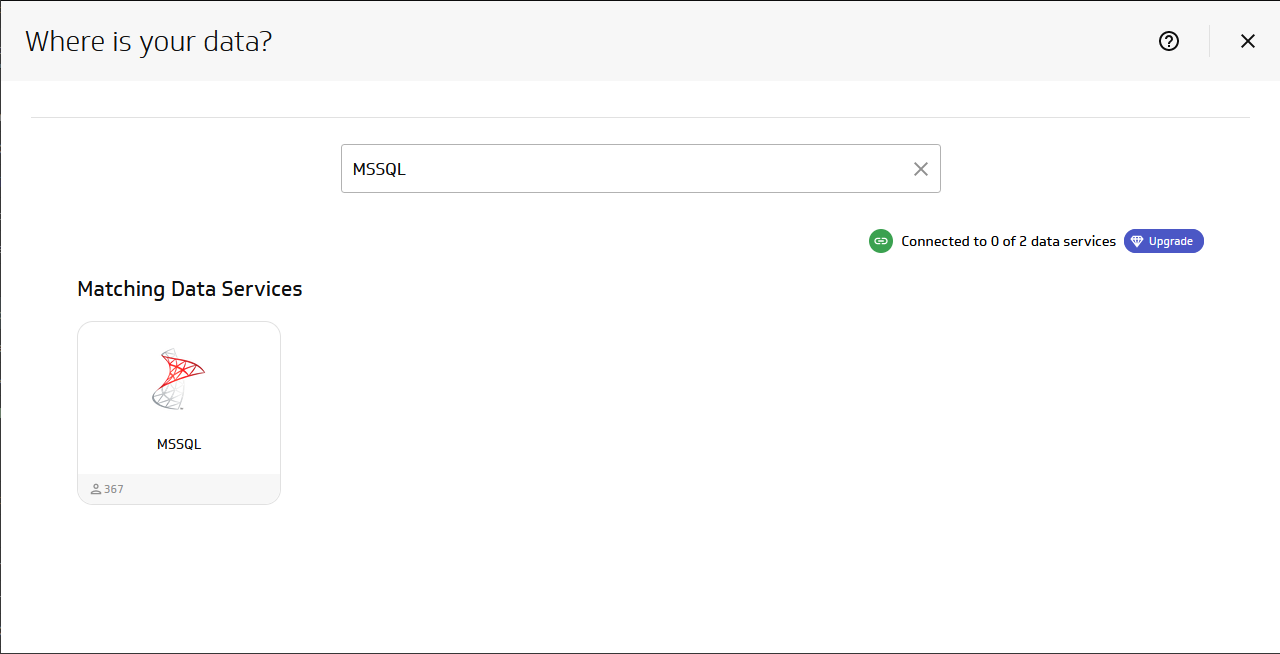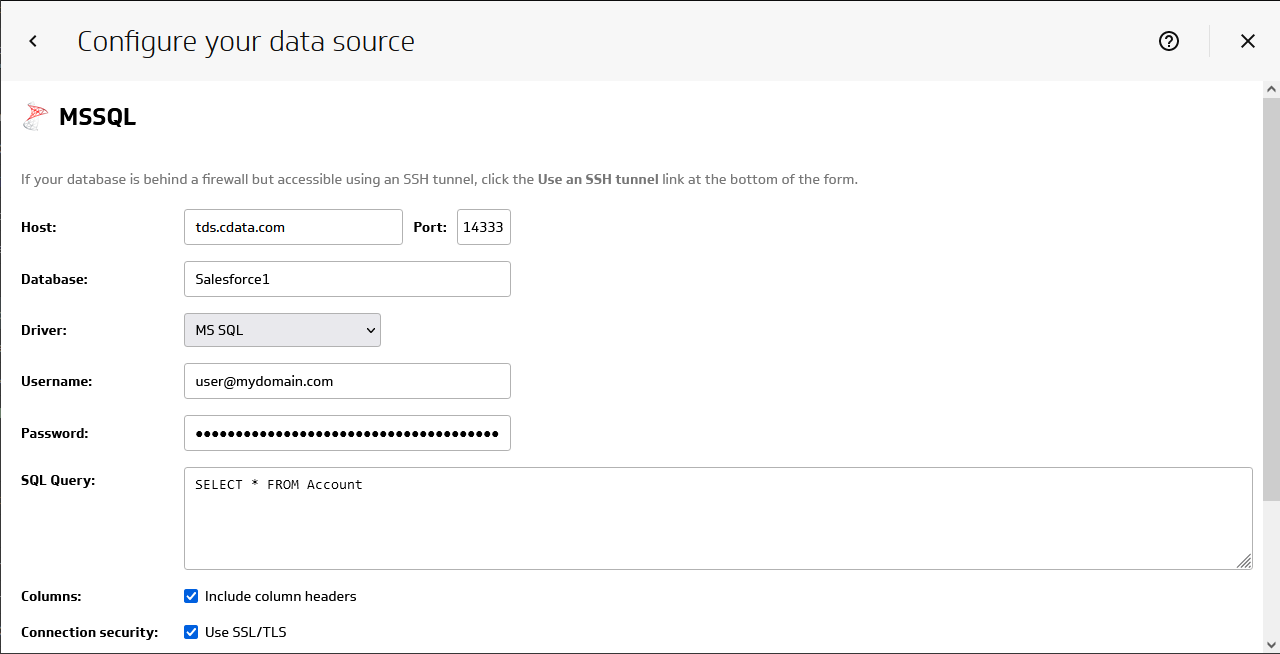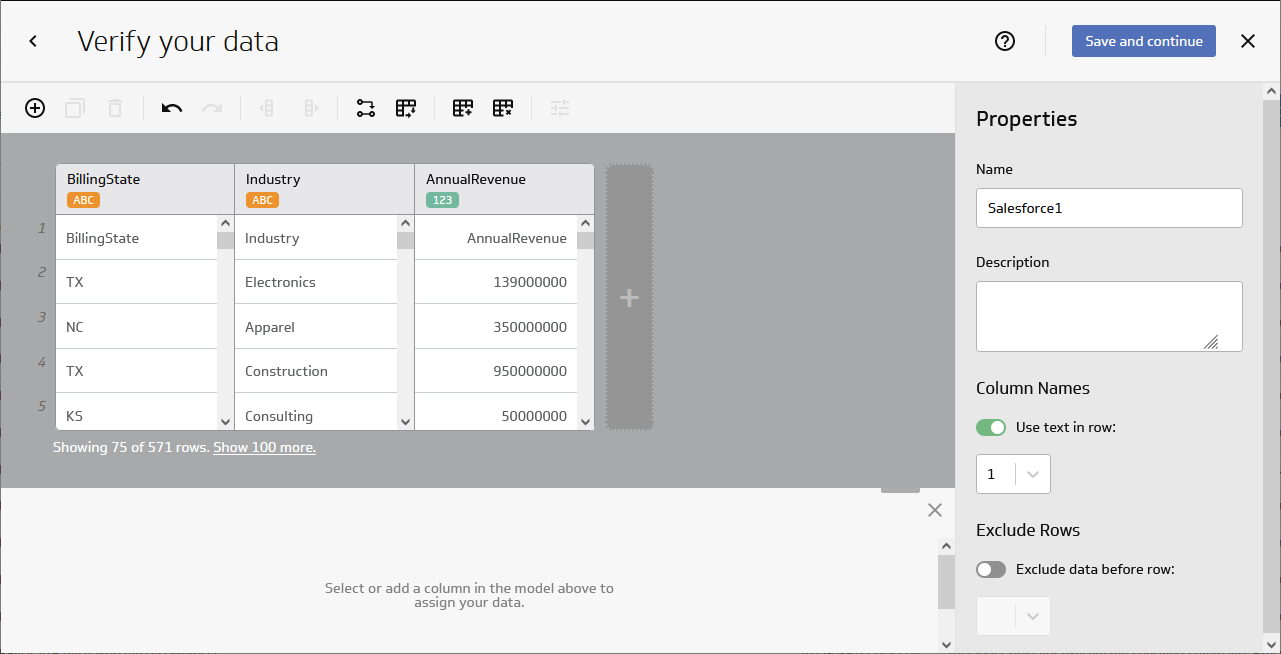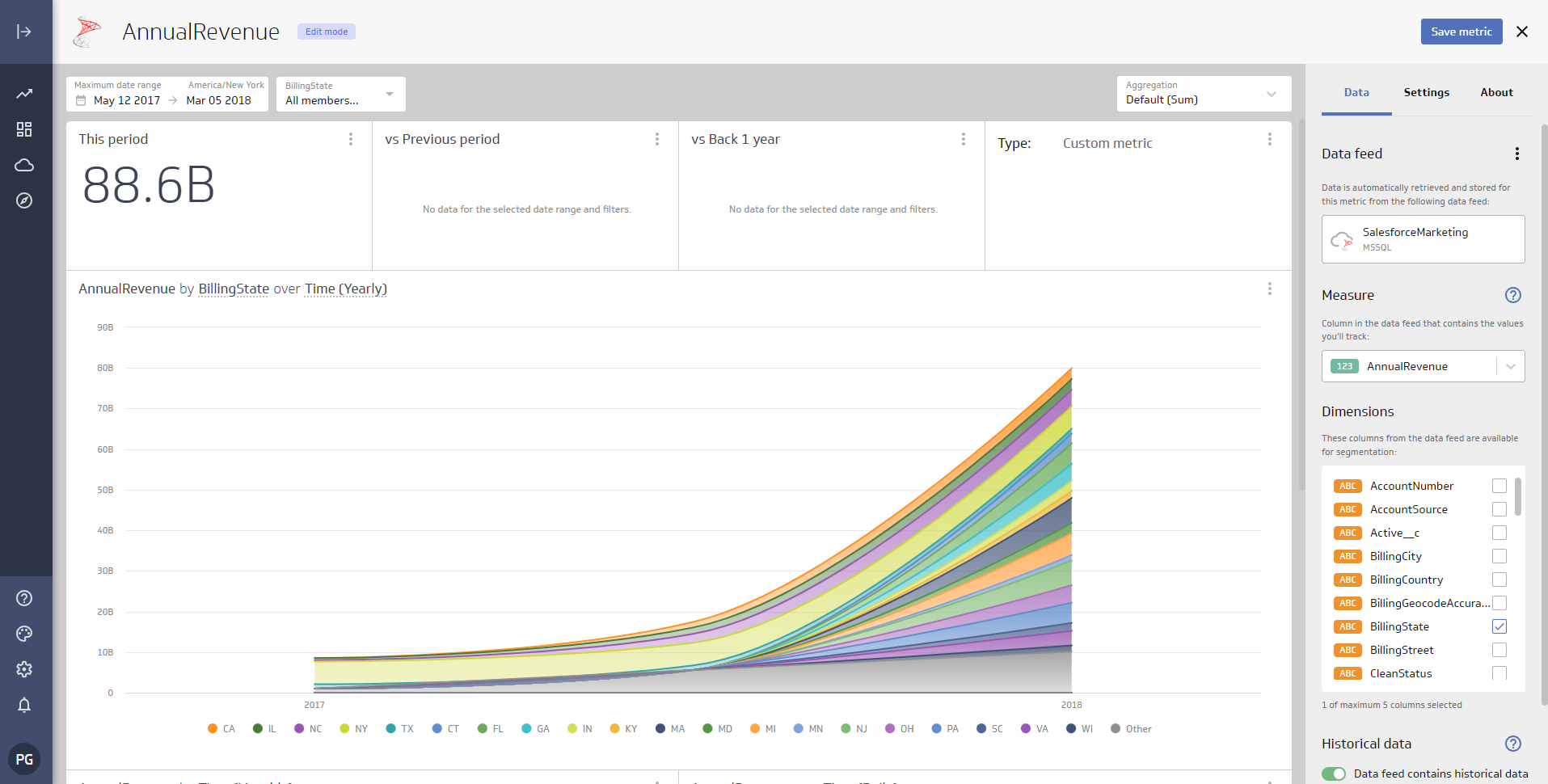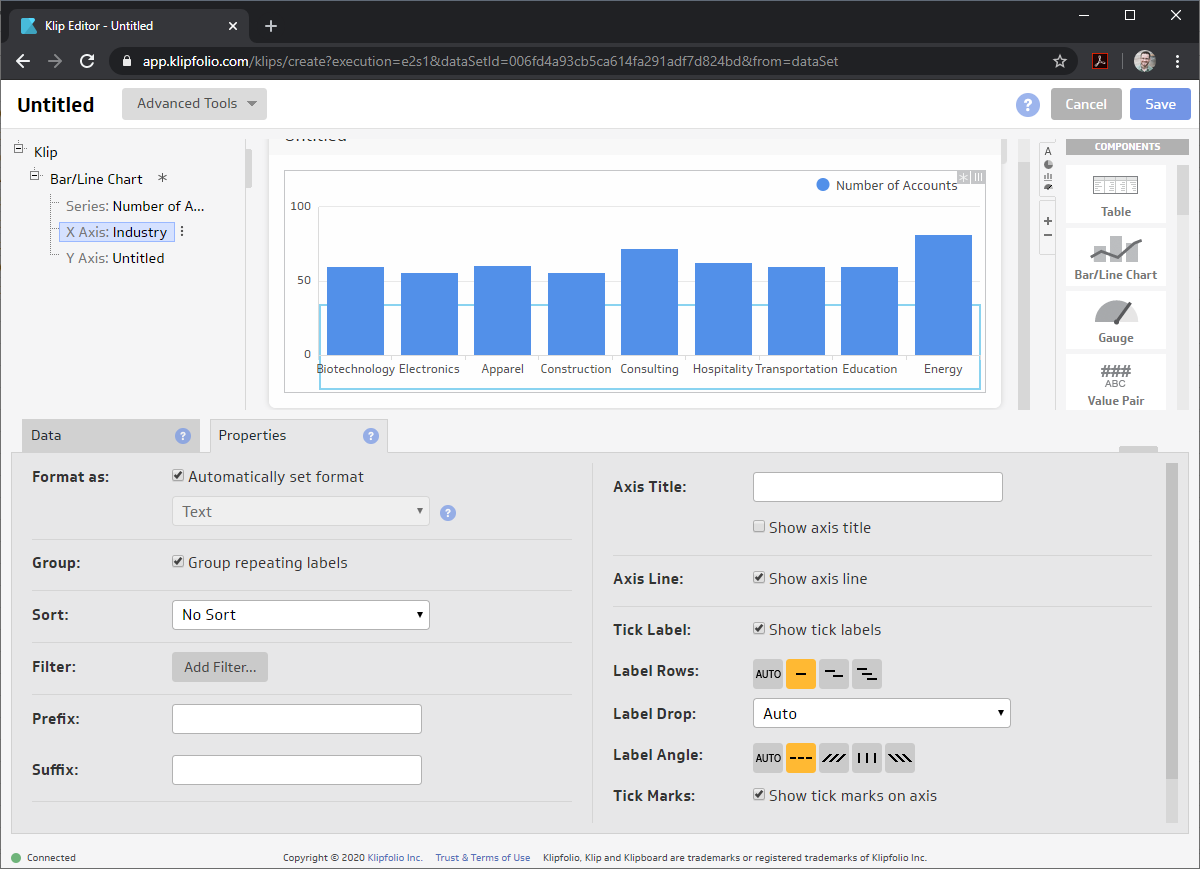Model Context Protocol (MCP) finally gives AI models a way to access the business data needed to make them really useful at work. CData MCP Servers have the depth and performance to make sure AI has access to all of the answers.
Try them now for free →Create Confluence-Connected Visualizations in Klipfolio
Use CData Connect Cloud to connect to Confluence Data from Klipfolio and build custom visualizations using live Confluence data.
Klipfolio is an online dashboard platform designed to create real-time business dashboards, whether for your team or clients. When combined with CData Connect Cloud, you gain immediate cloud-to-cloud access to Confluence data to create visualizations, reports, and more. This article provides step-by-step instructions on connecting to Confluence within Connect Cloud and creating visualizations using Confluence data in Klipfolio.
CData Connect Cloud offers a direct cloud-to-cloud interface for Confluence, enabling you to construct reports from real-time Confluence data data within Klipfolio—without the need for data replication to a database natively supported by Klipfolio. While building visualizations, Klipfolio generates SQL queries to fetch data. With optimized data processing capabilities out of the box, CData Connect Cloud efficiently directs all supported SQL operations (such as filters, JOINs, etc.) directly to Confluence, harnessing server-side processing to swiftly retrieve the requested Confluence data data.
Configure Confluence Connectivity for Klipfolio
Connectivity to Confluence from Klipfolio is made possible through CData Connect Cloud. To work with Confluence data from Klipfolio, we start by creating and configuring a Confluence connection.
- Log into Connect Cloud, click Connections and click Add Connection
![Adding a Connection]()
- Select "Confluence" from the Add Connection panel
![Selecting a data source]()
-
Enter the necessary authentication properties to connect to Confluence.
Obtaining an API Token
An API token is necessary for account authentication. To generate one, login to your Atlassian account and navigate to API tokens > Create API token. The generated token will be displayed.
Connect Using a Confluence Cloud Account
To connect to a Cloud account, provide the following (Note: Password has been deprecated for connecting to a Cloud Account and is now used only to connect to a Server Instance.):
- User: The user which will be used to authenticate with the Confluence server.
- APIToken: The API Token associated with the currently authenticated user.
- Url: The URL associated with your JIRA endpoint. For example, https://yoursitename.atlassian.net.
Connect Using a Confluence Server Instance
To connect to a Server instance, provide the following:
- User: The user which will be used to authenticate with the Confluence instance.
- Password: The password which will be used to authenticate with the Confluence server.
- Url: The URL associated with your JIRA endpoint. For example, https://yoursitename.atlassian.net.
![Configuring a connection (Salesforce is shown)]()
- Click Create & Test
- Navigate to the Permissions tab in the Add Confluence Connection page and update the User-based permissions.
![Updating permissions]()
Add a Personal Access Token
If you are connecting from a service, application, platform, or framework that does not support OAuth authentication, you can create a Personal Access Token (PAT) to use for authentication. Best practices would dictate that you create a separate PAT for each service, to maintain granularity of access.
- Click on your username at the top right of the Connect Cloud app and click User Profile.
- On the User Profile page, scroll down to the Personal Access Tokens section and click Create PAT.
- Give your PAT a name and click Create.
![Creating a new PAT]()
- The personal access token is only visible at creation, so be sure to copy it and store it securely for future use.
With the connection configured, you are ready to connect to Confluence data Klipfolio.
Connect to Confluence from Klipfolio
The steps below outline connecting to CData Connect Cloud from Klipfolio to create a new Confluence data source.
- Open Klipfolio
- Click in Data Sources to add a new data source
- Search for and select MSSQL as the Service
![Adding a new datasource.]()
- Click "Create a custom MSSQL data source"
- Configure the data source by setting the MSSQL connection properties:
- Host: tds.cdata.com
- Port: 14333
- Database: your database (e.g., Confluence1)
- Driver: MS SQL
- Username: a Connect Cloud user (e.g. user@mydomain.com)
- Password: the above user's PAT
- SQL Query: any query to retrieve data (e.g. SELECT * FROM Pages )
- Select the checkbox to "Include column headers"
- Select the checkbox to "Use SSL/TLS"
![Configuring the connection to Connect Cloud.]()
- Click "Get data" to preview the Confluence data before building a data model.
Build a Data Model
After retrieving the data, click the checkbox to "Model your data" and click "Continue." In the new window, configure your data model.
- Confirm that the model includes all columns you wish to work with
- Name your model
- (optional) Set the Description
- Set "Header in row" to 1
- Click the toggle to "Exclude data before row" and set the value to 2
- Click "Save and Exit"
![Configuring the data model.]()
Create a Metric
With the data modeled, we are ready to create a Metric (or visualization) of the data to be used in the Klipfolio platform for dashboards, reporting, and more.
- Click "Create metrics"
- Select a Data source
- Select a Metric value and default aggregation
- Select Segmentation(s)
- Select a Date & time
- Select a Data shape
- Configure the Display settings
- Click Save
![Configuring a Metric]()
- Navigate to your Metric and further configure the visualization
![A configured Metric]()
SQL Access to Confluence Data from Cloud Applications
Now you have a Metric built from live Confluence data. You can add it to a new dashboard, share, and more. Easily create more data sources and new visualizations, produce reports, and more — all without replicating Confluence data.
To get SQL data access to 100+ SaaS, Big Data, and NoSQL sources directly from your cloud applications, try CData Connect Cloud.

